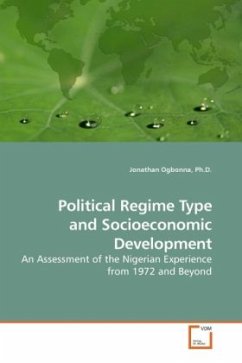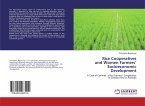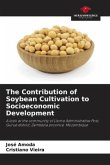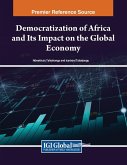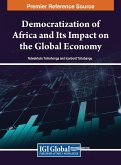Since Adam Smith s The Wealth of Nations in 1776, political economists have devoted much attention to further understand why some countries are rich and others are poor. This book is motivated by this puzzle in the field of political economy as it tries to grasp the factors that determine a country s rate of socioeconomic growth or lack thereof: Can the type of political regime in a country such as Nigeria play a role in the economic and social wellbeing of its citizens? Does it matter whether the political regime is Civilian-Democracy or Military-Authoritarian? To what extent can the development challenges of Nigeria be attributed to political regime type as opposed to mismanagement and leadership ineptitude? This study is important because in Nigeria the government has a unique responsibility for the authoritative allocation of values among all social units in the country. Therefore, the legitimacy of the government rests on whether there is sustained improvement in the well- being of the citizens. This study also has policy implications for African leaders as they seek ways to promote political stability and address the issue of good governance.
Bitte wählen Sie Ihr Anliegen aus.
Rechnungen
Retourenschein anfordern
Bestellstatus
Storno

